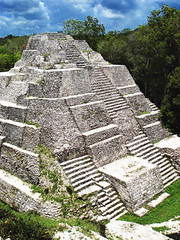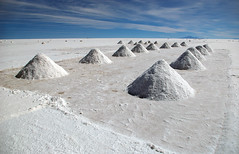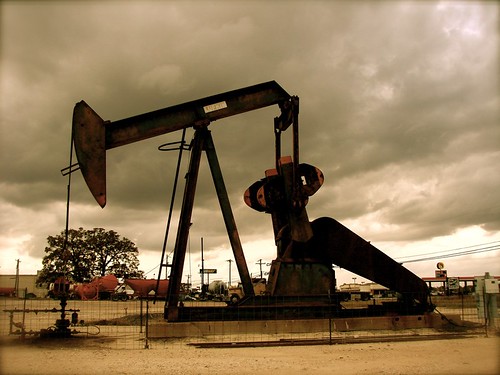 The WTO can’t get no love. People criticize it for being slow, ineffectual, not comprehensive enough, too comprehensive, irrelevant, etc. Most of these arguments are as old as the GATT. If you have 3 hours, I’m happy to sit down over a few beers and hash them out again.
The WTO can’t get no love. People criticize it for being slow, ineffectual, not comprehensive enough, too comprehensive, irrelevant, etc. Most of these arguments are as old as the GATT. If you have 3 hours, I’m happy to sit down over a few beers and hash them out again.But every once and a while, you read something completely new. Enter Daniel Abebe. The University of Chicago Law School Faculty Blog is hosting a roundtable discussion on the future of the WTO this week, and Mr. Abebe contributes this fascinating thought experiment:
I have a lot of problems with this analysis. Above all, it’s very hard to take a realist power framework and try to apply it to trade relations. Unlike traditional power struggles, trade is a positive sum game that’s underpinned by a robust international legal framework. Further, all of the major powers are still firmly committed to an open trading system and understand that constant sniping at each other will produce a worse outcome than cooperation.What does international relations theory tell us about these questions? ...With the end of the Cold War, the relative importance of realist concepts of security, survival and military power began to decline; the great powers all had nuclear arsenals, democracy was increasingly the preferred from of governance and globalization brought states together. Around the same time, the WTO came into existence and international trade, not naked security competition, became the prominent issue for some states in international politics... we should see great power competition to be increasingly focused on trade issues and, given the tentative claims here, we should see increasing gridlock in the WTO... the implication is that the WTO will be a venue for great power competition and struggle to generate compromises on trade issues and that changing the institutional rules is unlikely to address the underlying structural problem or variation in internal characteristics among the great powers.
I’m not suggesting that there’s no tension in global trade relationships. There’s a lot, and there have been some contentious, economically significant cases so far. But such tension is rooted much less in state-state power struggles than domestic political considerations. (Trade is a political economy issue, remember?) Countries generally bring cases in the WTO because they get complaints from domestic constituents.
Further, a brief look at the WTO’s dispute settlement understanding would suggest that the multilateral trading system makes for a pretty lousy venue for great power struggles. The Appellate Body can take years to deliver a ruling, which can then be appealed, thereby further dragging out the process. And if you’re economically powerful enough, you can ignore the AB’s rulings anyways: this has happened a number of times in post-Uruguay Round dispute settlement, and it would very likely be the case if the number of contentious cases increased. However, if all the major countries started ignoring most of the AB’s decisions, it would probably lose its credibility quickly. In short, concerted great power struggles would destroy the WTO.
Indeed, if the current crisis has shown us anything, it’s that the WTO is still remarkably fragile. The progressive rounds of trade liberalization over the past 60 years have been hard-won. The international community would do well to preserve and expand them. There's a lot of work to be done: tellingly, most of the new (post G-20 summit) protectionist measures don’t even violate obligations as they currently stand.
I think we’re a long way from trade wars supplanting real wars.
(photo from nomad photography’s photostream)




















